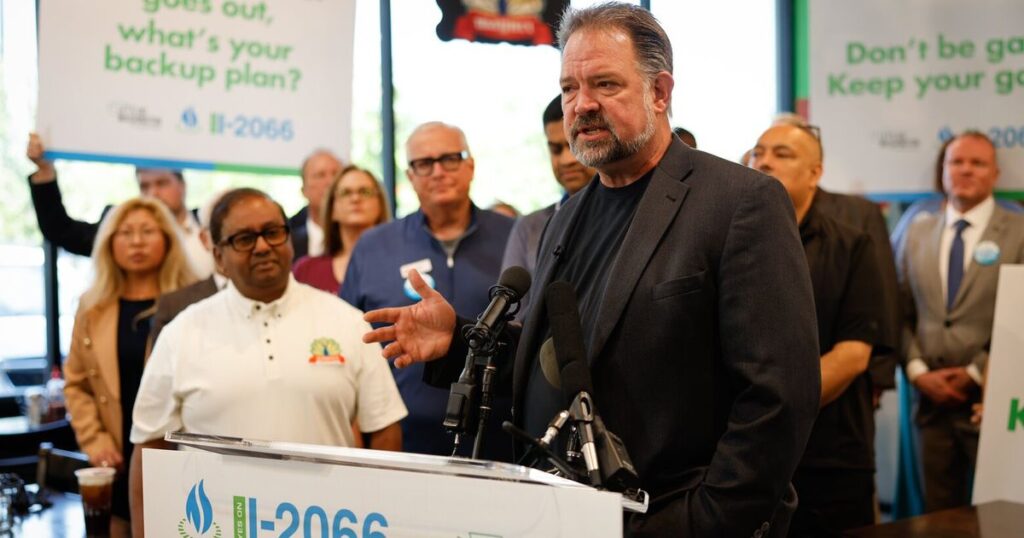Climate Lab
is a Seattle Times initiative exploring climate change impacts in the Pacific Northwest and beyond, funded by The Bullitt Foundation, Jim and Birte Falconer, Mike and Becky Hughes, University of Washington, and Walker Family Foundation.
TUMWATER — Supporters of a measure to maintain natural gas service in Washington claim they have enough signatures to get it on the November ballot.
Initiative 2066 aims to protect natural gas use and repeal parts of a recently passed law that pushes Puget Sound Energy to transition away from natural gas.
If successful, this could set up a significant ballot battle over environmental issues this fall. The natural gas measure would join Initiative 2117, which aims to repeal the state’s carbon emission reduction system.
Supporters submitted about 431,000 signatures to the Secretary of State’s office in Tumwater, surpassing the required 324,500 valid signatures. Another batch will be submitted later this week.
Let’s Go Washington, backed by Redmond businessman Brian Heywood, is behind the initiative, supported by the Washington Hospitality Association and the Building Industry Association of Washington.
Restaurant owners, grocery stores, hotel operators, and builders argue that natural gas is crucial for operations and affordability.
“We’ve formed a partnership to push back against legislative overreach,” Heywood said.
Dan Deva of Mayuri Foods in Redmond stated that converting his stores to all-electric would cost $700,000 to $800,000.
“I-2066 is simple,” said Greg Lane of the Building Industry Association of Washington. “It protects natural gas services and consumer energy choices.”
This year’s legislative session passed House Bill 1589 to help Puget Sound Energy comply with climate legislation. The bill does not ban natural gas, but initiative supporters want to ensure consumer choice.
Lane noted the higher costs associated with all-electric systems in new homes.
If passed, the initiative would repeal provisions assessing electrification potential and achieving cost-effective electrification for natural gas customers.
House Bill 1589 could potentially merge natural gas and electric customers into one rate plan, though Puget Sound Energy stated this change would take years. The initiative would repeal this provision.
The initiative also targets recently passed energy efficiency mandates.
State Sen. Joe Nguyen argued the initiative would raise rates for low-income and industrial methane gas users. He said the bill allows for thoughtful planning around electrification trends.
Climate Solutions called the initiative a “major misstep” and stressed the importance of existing laws to keep utility bills low.
Caitlin Krenn of Washington Conservation Action said the initiative was “misleading and destructive,” claiming it would remove communities’ choices and jeopardize efficiency programs.
Original Story at www.seattletimes.com
